The secret lives of forests: An interview with Nobel Laureate, Wangari Maathai
In an interview with Circle of Blue, 2004 Nobel Peace Prize winner Wangari Maathai discusses the crucial role forests play as rainwater harvesters. She emphasizes the importance of taking time to educate communities and governments to understand and care for forests. Maathai is the founder the Green Belt Movement in East Africa. She was the first East African woman to receive a Ph.D. from the University of Nairobi. The interview was done as part of Circle of Blue’s coverage of corruption in the water sector. Listen to audio excerpts of this interview below.
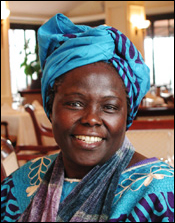 What do you think are the challenges that are facing East Africa right now in terms of corruption in the water sector?
What do you think are the challenges that are facing East Africa right now in terms of corruption in the water sector?
Well, first of all I would probably start with the source of the water. The water comes from the forests. And for many years we have been trying to encourage the government to manage the forested mountains in East Africa more responsibly and more accountably. And not to use forestland to give to their political friends or cronies, or to use that land for human settlements to appease communities or groups because they are political supporters. And this is because the forests are the sources of the water and they need to be managed. Unfortunately, this has continued to be done and as a result East Africa is considered a water scarce country. The more we encroach on our forests, the more we make ourselves very vulnerable.
The other issue — that is not completely about corruption, but that is because of what is considered to be perhaps the impact of climate change — is the fact that the mountains in East Africa are losing their glaciers. And as a result many rivers are losing their volume or drying up altogether. And therefore the corruption issue is within the forests, where forests are as I say not properly managed. They are used to satisfy political interests.
The third part that I would like to mention is one that I have been fighting a long time, fighting a system we know in East Africa as the Shamba system. Today it has been renamed Pelis. It is a system where we clear-cut indigenous forests and we replace those indigenous forests with commercial plantations of pines and eucalyptus. Now these plantations are very valuable to the commercial sector of the timber industry. And these industries twist the arms of the government — and this is where corruption comes in — so that the government accepts to clear indigenous forests and replace them with these commercial plantations. Now, unfortunately, once we use the forests for commercial plantations you change the services of the forest and especially the capacity of the forest to receive rainwater and to conserve it, so that it eventually flows downstream as rivers and streams. So these to me are the areas where I find that corruption can easily make East Africa very vulnerable as far as water is concerned.
Could you speak a bit about the role communities play in addressing issues like corruption in the water sector?
Well we must remember that communities who live near the forest are the communities that could save the forest — partly because they are near the forest, but also because they can see more clearly and more directly the services that we get from the forest. However, communities living near the forest are also the ones who are putting pressure on the government to be allowed to go and cultivate in the forest or to access the forest products. And therefore it requires a lot of education on these communities so that they can understand that the services we get from the forest are more valuable than the forest products we get when we destroy the forest. And this is where the Green Belt Movement has been trying very hard to work with the communities, educate communities, so communities do not put pressure on the government and instead are the ones who put pressure on the government to save forests.
How successful have you been in Kenya with that initiative?
I think that we have been successful, but not 100 percent successful. Because, unfortunately, we are also dealing with a large section of population that is poor — including farmers who grow tea and coffee and are usually the people who are close to the forests, because they grow coffee and tea along the slopes of these forested mountains. Now because of poverty quite often people forget the long term value of forests and want to solve their problems today. So sometimes even people we have worked with put pressure on the government to be allowed to go into the forest and to cultivate food crops, to turn the forest into agricultural land even though they know in the long term it is not good for them and for their future generations. But when you are dealing with poor people it’s very difficult to make them look down 20 years, 30 years, 100 years. They tend to look at issues today.
Having said that, I also want to say I have been very encouraged by the general public awareness in Kenya about the need to save forests. And if you have been following the discussions recently you will have noticed that the prime minister has been very concerned about human settlements in the Mau Complex, because the settlement in the Mau Forest Complex is affecting the flow of rivers and especially the rivers that flow into Lake Victoria and which are being used by the Japanese to generate power. And because of that the government has taken a lot of interest, because the Japanese raised their concern about the low flow of water — especially in dry seasons.
Fortunately [sic] sometimes donors have a greater voice even than citizens when it comes to the government. Governments will listen to donors much faster than they will listen to their citizens when they raise concern. I say this because some years ago, when the Japanese proposed to build a hydro-electric dam across the Sondu and Miriu rivers, which flow into Lake Victoria from the Mau Complex, we objected and we said that if the government was not going to protect the Mau forest and was going to allow cultivation, and the development of human settlements and the commercial plantations — as it has done on Mount Kenya and the Aberdares forest — we were going to have massive soil erosion that is going to silt into the dams. And although I understand that the dam the Japanese have built is not as affected by the siltation as much as the dams on the Tana River, I understand that the volume of water going through the dam is much more important. And that is why they are concerned if human settlements continue to be established in the Mau.
Therefore, at that time when the dam was being proposed, many NGOs including the Green Belt Movement raised objections and said that we want the government to commit to the protection of forested mountains where these rivers flow from. Of course, they didn’t listen. But the Japanese government actually halted the project. It later on started. Now it was threatening, because it was unable to launch the project because of poor flow of water from the mountains. And that is partly the reason the government is now working very hard to remove human settlements from the Mau Complex. Sometimes the government will allow the communities to settle in the forest and do a lot of damage and only when there is no water flowing they will go back and try to undo the damage. Sometimes, of course, it is too late.
Have you noticed then that Lake Victoria’s levels have fluctuated greatly in the past two decades?
Well, I am not sure of what has happened. I do not have any data in front of me to say that the waters that flow into the Nile are lower than they have been in the past. But we do know that there is less water flowing into Lake Victoria because of the damage that has been done to the forested mountains from which the rivers come. This is including the Mau Complex, which I was talking about earlier, but also the Cherengani Hills and the Mount Elgon.
If you had just one or two sentences to communicate how important it is to take care of water systems, what would you say?
Well that is the trouble. Sometimes we want to cut short and just say in a few words. Unfortunately, the majority of people do not make the linkages between what is happening to the forested mountains, what is happening to the rivers, what is happening to the underground water reservoirs, what happens to the rainwater when it falls down and it is not harvested — they do not make the linkages between that and the impact it has when the rivers stop flowing, or the volume is very low, or when the rains stop falling in a regular pattern. So I think that what we need is to educate and not cut short. Educate. So that more and more people can understand the linkages between the source of the water and not just look at the water itself.
I sometimes listen to people in this country say “We need to give people water; we need to dig wells.” Well, if you are going to dig a well you want to make sure there is enough water underground. And if you want to have enough water underground, if you want to have a high water level in the underground water reservoirs, you need to harvest rainwater. And the best harvesters of rainwater are forests. And so I want to encourage people to understand the linkages of what is happening in these forest ecosystems and the very essential resources that we desperately need, such as water.
Why do you think it is hard to get media attention toward these water issues, in Kenya and across the globe?
Well I guess it is the same thing. It is because the media does not also look at the linkages. When people are lining up in Nairobi with their jerry cans, waiting for water — like they are doing right now, as you and I speak — as long as they are calm and they are waiting maybe they will just take a picture of hundreds of jerry cans all lined up waiting for water. But if people fight for that water, then of course the [media is very interested].
Interview by C.T. Pope and Sarah Haughn for Circle of Blue, August 19, 2008

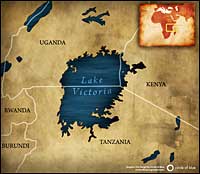

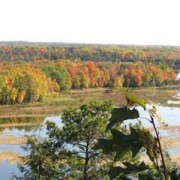
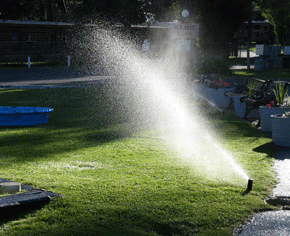


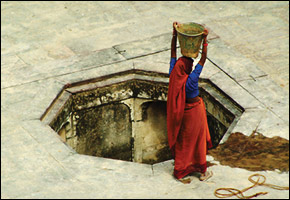

I appreciate the efforts of Wangari Maathai and I would like to get the latest information about the Mau Complex and how it has affected the East Africa at large. Kindly reply via Email above.